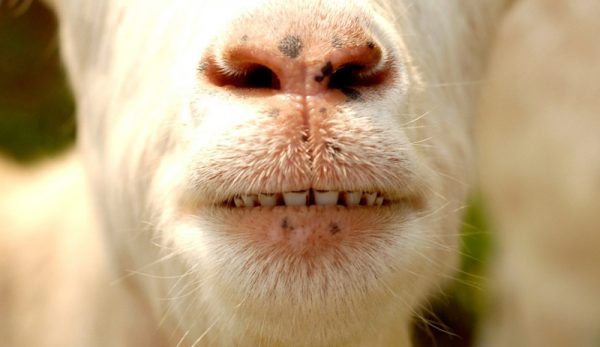
Compared to other animals like horses, goats tend to need less dental care. Maybe it’s because their diet is slightly different—goats eat scrub brush that horses won’t. Perhaps it’s the anatomical difference—goats only have lower incisors and a hard upper dental plate, whereas horses have upper and lower incisors.
“Goats seem to need floating (filing) less often than horses,” said Jen Kolberg, who owns Sweet Retreat Equine Dentistry. She also sees goats in her Pennsylvania-based practice.
“Most of the time it seems due to older age, but just like any animal it all depends on their lifestyle, diet and even confirmation.”
Just because goats may be lower maintenance in dental care needs doesn’t mean it’s something to be overlooked. Teeth play an important part in an animal nutrition, including that of goats. Chewing is the first step in the digestion system so that minerals, vitamins and fibers can be used in the body.
Here are a few things to consider for the goats on your farm.
Read more: Here are some things you need to know to start keeping goats.
Understanding Goat Teeth
Like all mammals, goats shed baby teeth for permanent ones. Kids develop their milk teeth from birth to 1 week old. Throughout the first month of life, they grow four sets of milk teeth.
By age 1 their permanent incisors begin erupting. The process lasts until about age 4.
During the average day, goats make 40,000 to 60,000 chewing motions. An extraordinarily agile upper lip allows them to selectively grab their food. This helps them avoid thorns and plant spines, according to Kolberg.
“Goats chew in an elliptical or oval-type motion, as well as side to side,” Kolberg said. “While horses only chew in the elliptical pattern and wear their teeth differently. I think this is why goats need floating or filing less often. It seems to wear them more evenly throughout life.”
Deciding It’s Time for a Dentist
Animals that are losing weight, dropping food while chewing or spitting out wads of roughage (also called quidding), are candidates for dental exams, according to Kolberg. Other signs of a sharp tooth edge or trouble spot include an exaggerated motion of the lower jaw while eating, stretching their neck, or twisting their head while chewing.
“Hooks, ramped molars, sharp points or tall teeth are just a few potential dental issues goats may have,” she said.
Weight loss can be a sign of multiple problems, but teeth should never be overlooked in the diagnosis process. If there’s a sore spot in a goat’s mouth, it’s not going to want to eat.
Skipping meals or eating smaller rations because of pain prevents goats from getting the nutrition needed to maintain a healthy weight.
Read more: Want stories delivered to your inbox? Sign up for the Hobby Farms newsletter!
Preparing to Work With a Dentist
Only veterinarians can make an official diagnosis about health conditions. But a dentist can offer observations about the animal’s health that can inform a consultation conversation with a veterinarian.
When Kolberg examines a goat, she starts with a visual inspection. She’s looking for lumps, bumps or other anomalies on the face, jaw or neck.
Peering inside the goat’s mouth, she looks for missing, broken or rotting teeth, as well as the overall shape of the teeth. She also examines inside the mouth for sores and cuts, which can indicate sharp tooth edges.
“Make sure the dentist knows their chewing pattern so they know where and what to take down (or angles to leave) and have tools that fit their mouths,” Kolberg said.
Since goats are herbivores, veterinarians and dentists aren’t typically worried about gingivitis or periodontal disease that is common in other animals. Low maintenance is always a benefit on any farm!




